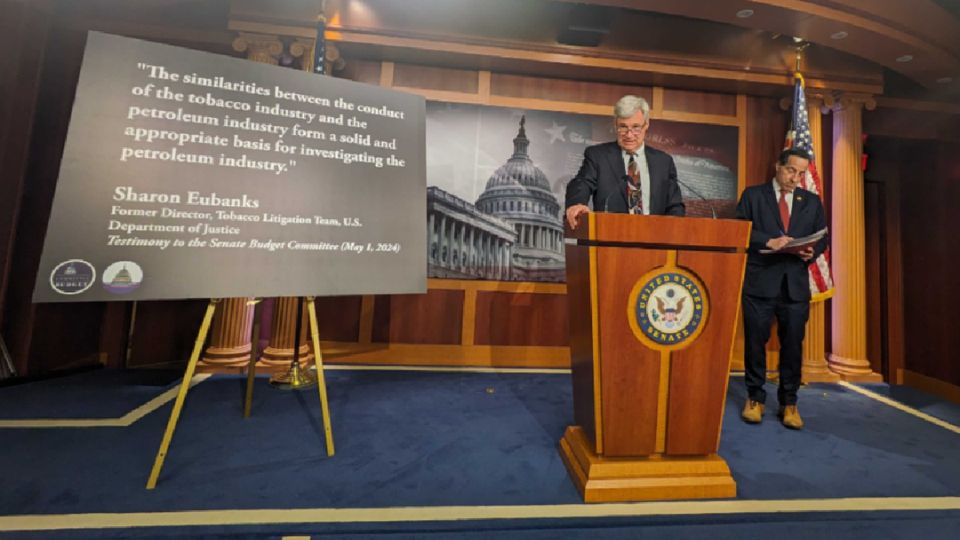Congressional Democrats are investigating a dinner meeting between former President Donald Trump and oil industry executives. They want to know if any promises were made or if any promises were received in exchange for $1 billion in campaign donations that Trump requested.
The latest in a series of investigations by Democrats into the oil industry in recent weeks is the letters sent by Senate Budget Chair Sheldon Whitehouse (D-R.I.) and Senate Finance Chair Ron Wyden (D-Ore.) to nine oil companies and industry trade associations. Democrats have increased their political pressure on the industry at the same time that oil company executives have begun donating money to support Trump’s campaign against President Joe Biden.
The committees sent letters to several companies and a trade association. The companies include Chevron, Exxon Mobil, Continental Resources, Chesapeake Energy, Occidental Petroleum, Venture Global LNG, Cheniere Energy, and EQT Corp. The trade association is called the American Petroleum Institute. The investigations are looking into whether the companies talked about policies that would benefit their industry and that Trump might implement if he were to be re-elected, in exchange for their financial backing.
The senators are requesting information about policy-related documents that industry lawyers may be prepared to give to Trump for his signature if he becomes president again. This issue was first reported by POLITICO.
The senators, whose letters were obtained by POLITICO, express their belief that the transaction involving policies in exchange for money is clearly motivated by cronyism and corruption. “This request, along with concerning reports that fossil fuel interests and other companies have been creating language for executive orders that benefit their businesses in a potential second Trump Administration, requires further investigation without delay.”
Also Read: New Study Ranks the Most Historically Racist Cities In West Virginia
The companies’ representatives did not respond to questions right away. A spokesperson for the API said that the meeting was not unusual.
“According to API spokesperson Andrea Woods, this is another action taken during an election year to divert attention from America’s requirement for increased energy, such as oil and natural gas, to fuel our economy and address ongoing inflation,” “API meets with candidates and policymakers to talk about the importance of having good energy policies, and this meeting was just like the others.”
The letters on Thursday come after a previous set of messages. On Wednesday, Frank Pallone, the ranking member of the House Energy & Commerce committee, sent a request for information to Exxon, Chevron, and other industry entities. The request is about any communications they may have had with officials from the oil producing cartel OPEC+. Pallone began the investigation because the Federal Trade Commission claimed that the former CEO of Pioneer Natural Resources, a company now owned by Exxon, tried to work together with other companies and OPEC to control oil production in a way that would keep prices high.
On Thursday, Democrats on the House Natural Resources Committee requested Chair Bruce Westerman (R-Ark.) to investigate the collusion allegations as well.
“In the past two years, you and your colleagues have often complained about the high prices of petrol. You have tried to blame environmental regulations and efforts to hold polluters responsible, even though the United States is the top producer of oil and gas in the world, and the industry has made a lot of money,” wrote Raul Grijalva (D-Ariz.), a member of the committee, in a letter to Westerman. “The complaint released by the FTC presents evidence that supports an alternative explanation, which is in line with the explanation provided by Committee Democrats: Major oil companies worked together to increase their profits, even if it meant hurting consumers. They did this by cooperating with cartels made up of countries that are considered a threat to the national security of the United States.


Leave a Reply